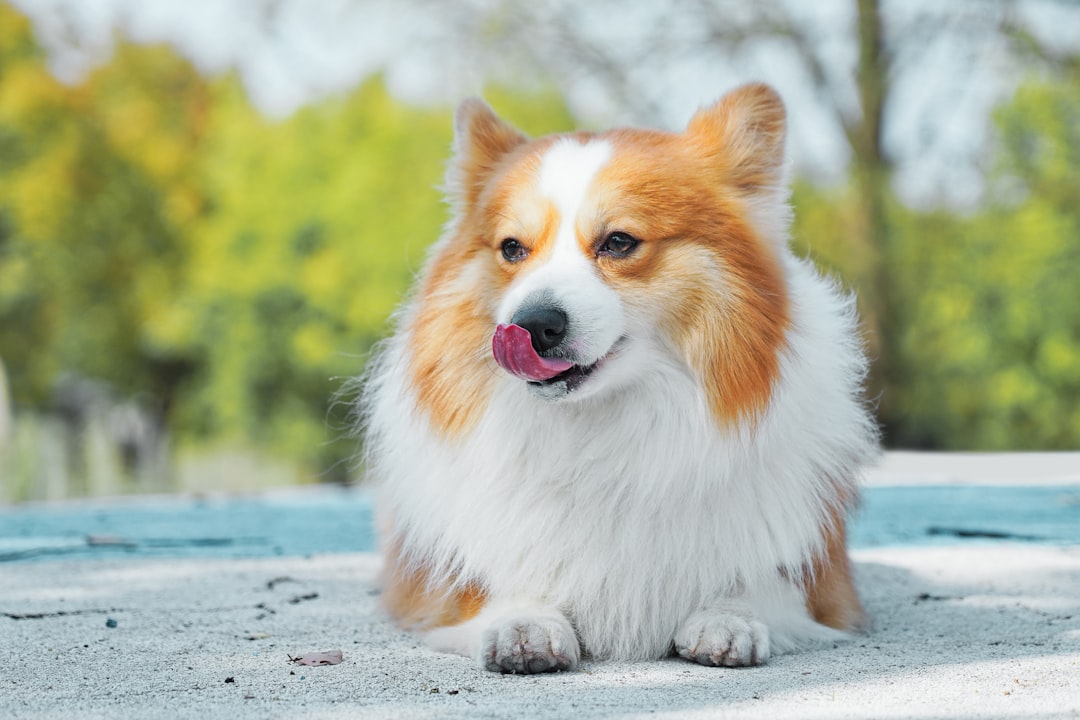A comprehensive guide to Corgi breeds, including Pembroke Welsh Corgis and Cardigan Welsh Corgis, covering their history, characteristics, health considerations, grooming and maintenance, training and socialization, and responsible ownership.

Corgi Breeds: An In-Depth Exploration
 Pembroke Welsh Corgis: History and Characteristics
Pembroke Welsh Corgis: History and Characteristics
Pembroke Welsh corgis, originating in Pembrokeshire, Wales in 1107 AD, are descendants of Nordic spitz breeds and are notably favored by Queen Elizabeth II.[3]. These corgis are known for their expressive body language, high intelligence, and good-natured personalities. Unlike their Cardigan counterparts, Pembrokes are considered more outgoing, reflecting their confident and friendly nature. However, they are also more prone to certain diseases and musculoskeletal issues compared to Cardigan corgis.
For instance, a key difference lies in their susceptibility to specific health issues. Pembroke Welsh corgis are at risk for certain diseases and musculoskeletal issues, which potential owners need to consider when choosing this breed [3]. This information is crucial for individuals planning to bring a Pembroke Welsh corgi into their homes, as it highlights the importance of proactive healthcare and early detection of potential health concerns.
Cardigan Welsh Corgis: History and Characteristics
On the other hand, Cardigan Welsh corgis are older than Pembrokes and descend from German teckel lineage. They are noted for being more reserved compared to their Pembroke counterparts, reflecting a more cautious and observant demeanor. Additionally, Cardigans are recognized for having a tail and slightly larger size, distinguishing them physically from Pembroke corgis. Moreover, they exhibit different coat colors and markings compared to Pembrokes, adding to the diversity within the corgi breed.
An illustrative example of these differences is the distinct coat colors and markings between the two corgi types. Cardigan Welsh corgis possess a broader range of coat colors and markings compared to Pembroke Welsh corgis, showcasing the variety present within the corgi breed.
Health and Care Considerations
The health and care considerations for corgis, especially Pembroke Welsh corgis, are crucial for prospective owners to understand. Pembroke Welsh corgis are at risk for health issues, including certain diseases and musculoskeletal issues, compared to their Cardigan counterparts [3]. On the other hand, Cardigan Welsh corgis generally suffer from low rates of health problems, except for specific issues like cancer, back problems, and eye diseases. This information is vital for individuals considering corgis as pets, as it allows them to make informed decisions and prepare for the potential healthcare needs of their chosen corgi breed.
Grooming and Maintenance
Both Pembroke and Cardigan Welsh corgis have a double coat and shed excessively, requiring regular grooming to manage their fur. High-quality dog food is also essential to support their active and energetic lifestyle, ensuring that their nutritional needs are met. This information emphasizes the importance of regular grooming and proper nutrition for the overall well-being of corgis, providing practical insights for current and potential corgi owners.
 Training and Socialization
Training and Socialization
Corgis, known for their strong herding instinct, require consistent, motivational training methods and mental stimulation to thrive [3]. Both Pembroke and Cardigan Welsh corgis need early socialization, training, and moderate exercise for a healthy and fulfilled life. This insight underscores the significance of providing adequate mental stimulation and engagement for corgis, enabling them to lead happy and balanced lives within their human families.
Responsible Ownership and Conclusion
In conclusion, understanding the distinctions between Pembroke Welsh corgis and Cardigan Welsh corgis is essential for responsible ownership. It is crucial to emphasize the importance of proper socialization, training, and healthcare for these beloved breeds. Additionally, potential owners are encouraged to consider adoption from a shelter or Corgi rescue organization, promoting responsible pet ownership and contributing to the welfare of these remarkable dogs.
